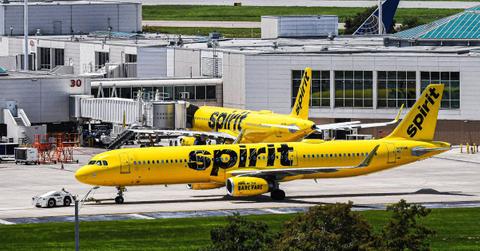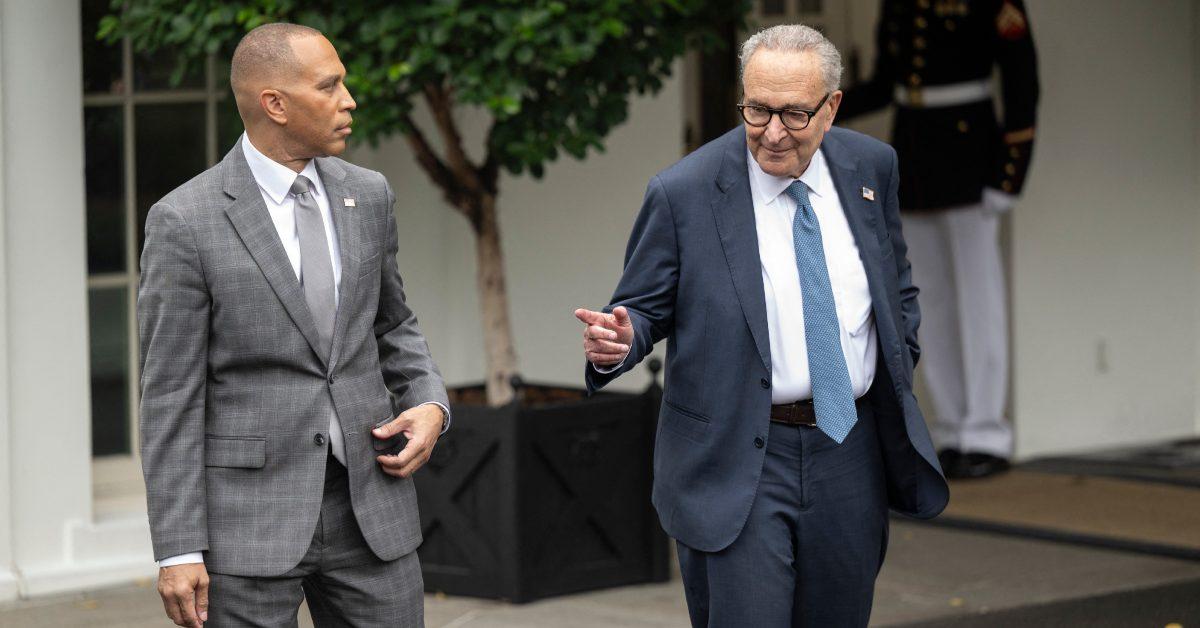Flying During a Government Shutdown? Here’s What to Expect at the Airport
Will flights be delayed? Here's a breakdown of the impact.
Published Oct. 2 2025, 9:40 p.m. ET

Government shutdowns aren’t exactly uncommon in the U.S. They happen when Democrats and Republicans in Congress can’t come to terms on the funding bills needed to keep operations moving, and that includes paying federal workers like air traffic controllers. While the threat of a shutdown is usually avoided either before or right when the new fiscal year begins on Oct. 1, there are times when no agreement is reached and the shutdown goes into effect.
When that happens, many federal workers stop receiving their paychecks.
The 2018 shutdown was one of the longest on record, lasting 35 days, and in 2025, yet another occurred, putting the livelihoods of federal workers on the line. Naturally, a shutdown affects many fields, and aviation is no exception. So how does it specifically affect flights?
Are flights affected by a government shutdown?

In short, they can be. An airport relies on many different roles working together to keep operations running smoothly. If just one part of that system slows down or stops, the entire flow can be disrupted. Take pilots, for example. Since most pilots, like those flying for Delta, Spirit, or American Airlines, are employed directly by the airlines and not the federal government, their paychecks aren’t impacted by a shutdown. So, they can continue flying as usual.
However, many of the other employees inside airports are federal workers, and their paychecks are affected during a shutdown. While they are still required to report to work if their role is considered essential, like air traffic controllers and TSA officers, they don’t get paid until the shutdown ends.
That means flights generally continue operating, but delays and cancellations can happen if federal workers are absent, call out, or staffing levels drop so low that airports can’t keep up at normal speeds. So yes, a government shutdown can impact flights, but it rarely shuts them down completely.
Are air traffic controllers affected by a government shutdown?
Yes, air traffic controllers are impacted by a government shutdown because they are considered essential workers and their paychecks are funded by the federal government. When the government shuts down, they still have to report to work but don’t get paid until the shutdown ends. They’re usually paid retroactively, but in the meantime, it leaves them struggling to figure out how to cover their own expenses and provide for their families without a paycheck.
And this only adds to the heavy pressure they’re already under. Air traffic controllers are widely considered overworked, and the profession is extremely understaffed. An example of this is highlighted in documents obtained by The New York Times, per the New York Post, when a single controller was tasked with handling a two-person job when an American Airlines plane collided with an Army Black Hawk helicopter near Ronald Reagan Washington National Airport in January 2025.
So while air traffic controllers generally receive back pay once the government reopens, it’s understandable why some might call out or turn down shifts when faced with the added stress of a shutdown.
How is TSA affected by a government shutdown?
Like air traffic controllers, TSA workers are also considered essential employees whose wages come from the federal government, so their pay is impacted during a government shutdown. They are still required to report to work, and failing to do so could result in disciplinary action or even termination.
Like controllers, TSA workers eventually receive back pay once the government reopens, but in the meantime, they have to figure out how to make ends meet without a steady paycheck. It’s far from an ideal situation, especially for those living paycheck to paycheck. That’s why some airport workers affected by shutdowns take on side jobs after their shifts, like the air traffic controller who drove for Uber to bring in extra money, according to Politico.
But it’s not only the workers who feel the effects of a government shutdown at airports. With fewer non-federal employees and essential staff working without pay, major delays can occur, especially at security checkpoints. These delays can lead to missed flights and a slew of other problems for travelers.